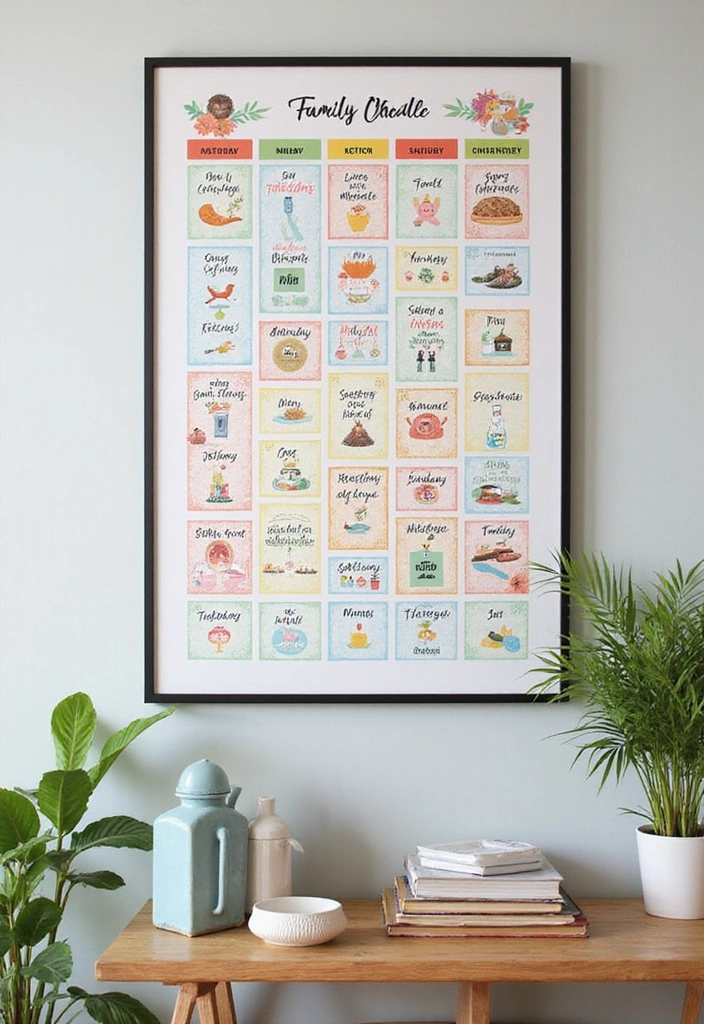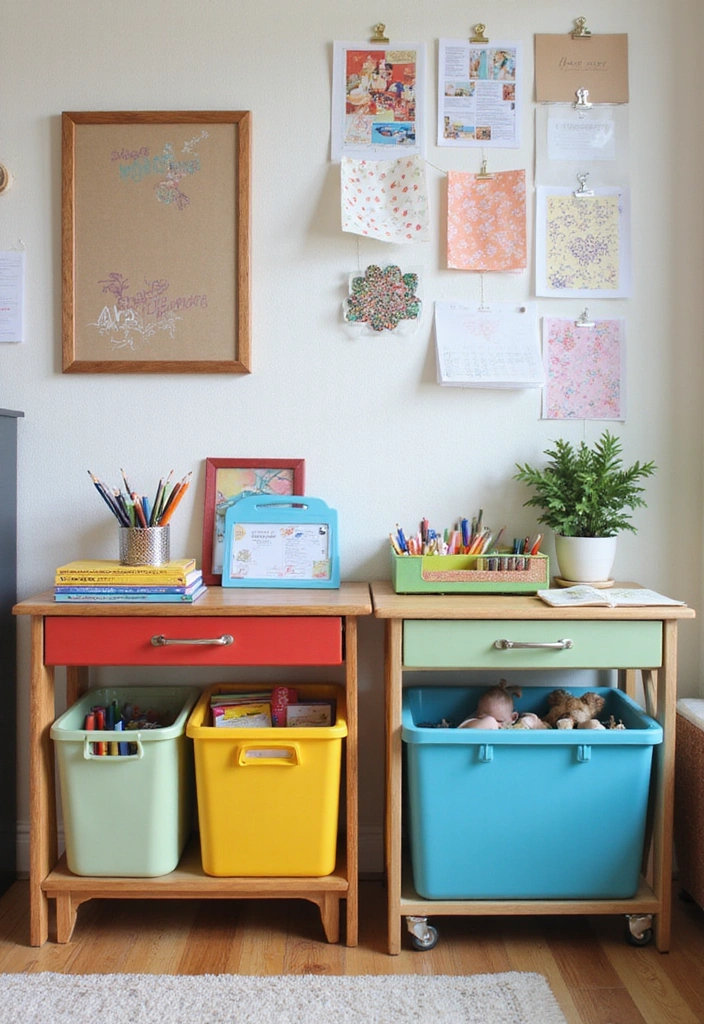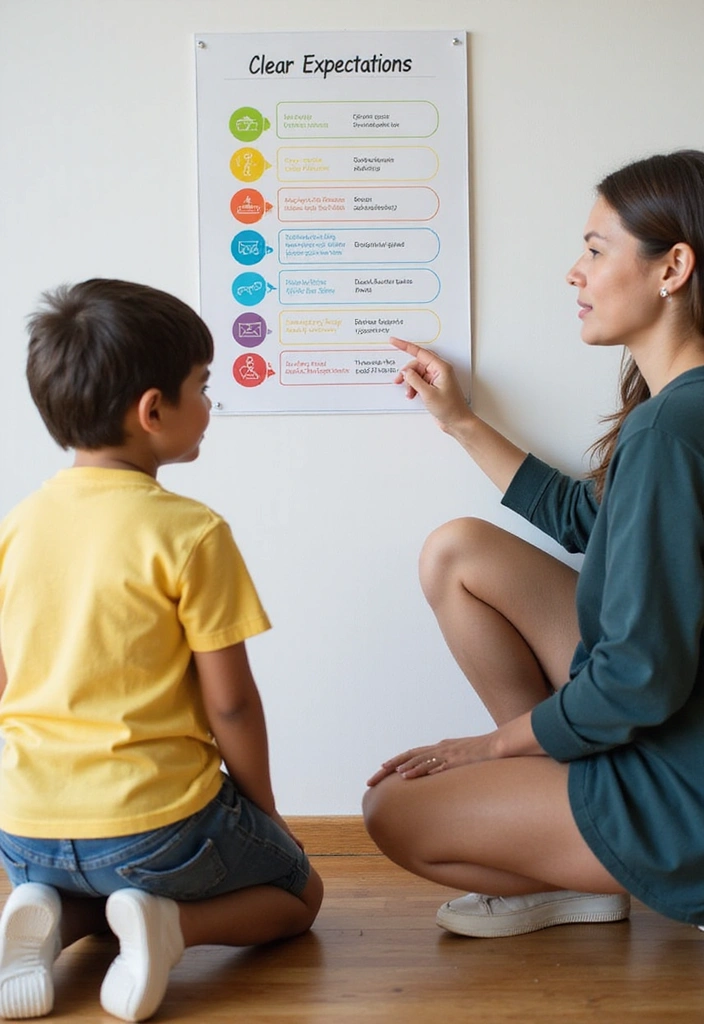Thrive as a single parent! Get 22 practical, essential tips to manage time, finances, and well-being, creating a more joyful and less overwhelming experience. Tip #11 is a game-changer!

Embracing single parenthood can feel overwhelming, but it’s also a unique journey filled with love, growth, and resilience. With the right support and strategies, you can navigate the challenges more effortlessly. This list is packed with essential tips that cover everything from time management to self-care, providing you with the tools you need for a smoother parenting experience. Find the hidden gems in our list that can transform your journey and help you thrive as a single parent.
Discover practical resources and insight to support your everyday life, and you’ll see that you’re not alone in this. Let’s dive in and explore these valuable tips that can illuminate your path towards a fulfilling single-parent experience.
1. Build a Support Network

Creating a solid support network is crucial for single parents. Relying solely on yourself can be exhausting, so look to friends, family, and community resources for help. Connect with other single parents online or in-person to share experiences and advice. Consider joining local support groups or online forums where you can discuss challenges and celebrate victories together.
Another great option is to reach out to neighboring families or other parents at your child’s school. Building relationships with those who understand your journey can lighten your emotional load and provide a safety net during tough times. Don’t hesitate to ask for help when you need it; it’s okay to lean on others.
for establishing your network:
– Attend local meet-ups or parenting workshops.
– Explore social media groups for single parents.
– Share responsibilities with trusted friends or family.
Remember, you don’t have to navigate this journey alone!
2. Prioritize Self-Care

As a single parent, your energy can be stretched thin, making self-care essential. Prioritizing your mental and physical health is not just beneficial for you but also sets a great example for your kids. Schedule time for activities that rejuvenate you, whether it’s reading, exercising, or simply enjoying a quiet cup of coffee.
Having a self-care routine can help you recharge and manage stress. Even small moments can make a difference, like a short walk or a few minutes of meditation. Consider creating a self-care checklist to keep you motivated and focused on your well-being. Don’t forget to indulge in your passions; it’s important to nurture your interests outside of parenting.
Self-care ideas:
– Daily walks or jogs.
– Pampering sessions at home, like baths or DIY facials.
– Engaging in hobbies that inspire you.
Remember, taking care of yourself means you can take better care of your little ones!
3. Establish a Routine

Having a consistent routine can bring a sense of stability and predictability to your household, which is essential for both you and your child. Create a daily schedule that includes time for homework, chores, play, and relaxation. This structure helps kids know what to expect and can reduce anxiety.
Involve your children in the planning process to give them a sense of responsibility and ownership. Use charts or planners to visually highlight the routine, making it fun and engaging. Flexibility is essential, so allow for adjustments when necessary, but try to stick to the core structure to maintain balance.
for a successful routine:
– Set clear expectations for daily tasks.
– Designate family time for bonding activities.
– Incorporate downtime for relaxation or play.
Creating a routine can make daily life easier and foster a sense of security for your kids.
4. Embrace Technology Wisely

In today’s digital age, technology can be a tremendous ally for single parents. Use apps and online resources that provide helpful tools for organization, budgeting, or education. For example, family calendar apps can help keep everyone on the same page, while budgeting apps can assist you in managing expenses.
Screen time can also be a double-edged sword. Encourage educational content that promotes learning, while also balancing leisure activities that foster creativity and social skills. Create technology rules that suit your family’s needs; this can include time limits or specific times when devices are put away.
Tech tips for single parents:
– Explore educational apps tailored to your child’s age.
– Use online grocery shopping for convenience.
– Find community apps for local events and resources.
By embracing technology wisely, you can enhance your parenting experience and create valuable learning opportunities.
5. Focus on Communication

Open lines of communication are paramount in single-parent families. Encourage your children to express their thoughts and feelings openly, and make it clear that they can talk to you about anything. Regularly schedule check-ins where you sit down together and discuss their day, any worries they might have, or simply share fun moments.
Be an active listener. When your child speaks, show genuine interest and engage with their concerns. This not only strengthens your bond but also builds their confidence. Teaching your children effective communication skills will benefit them in their relationships and future endeavors.
Communication strategies:
– Use ‘I’ statements to express feelings.
– Practice active listening by summarizing what they say.
– Create a safe space for sharing thoughts without judgment.
With strong communication, you can foster trust and understanding in your family.
6. Manage Finances Smartly

Navigating finances as a single parent can be daunting, but with careful planning and smart management, you can create a healthier financial future for you and your kids. Start by assessing your income and expenses to understand where your money goes each month. Creating a budget can help you prioritize essential expenses and cut back on non-essentials.
Look into resources that can assist with budgeting, such as financial planning websites or community workshops. Also, consider seeking assistance from local organizations that offer support for single parents, including scholarships for school or childcare help.
Money management tips:
– Track spending with budgeting apps.
– Create an emergency fund for unexpected expenses.
– Look for community resources for financial assistance.
By taking control of your finances, you can reduce stress and focus more on enjoying time with your kids.
7. Set Boundaries

Setting appropriate boundaries is key to maintaining a healthy balance in your life as a single parent. Learn to say no when needed and establish limits on what you can handle. Ensure your children understand these boundaries as well, so they know the importance of respecting personal space and time.
Boundaries can extend to relationships with ex-partners or family members, ensuring that you create a positive environment for your children. Clearly communicate what is acceptable and what isn’t, which helps in avoiding misunderstandings.
Boundary-setting strategies:
– Define personal time for self-care and relaxation.
– Discuss with kids the importance of respect and limits.
– Be firm yet fair in enforcing boundaries.
By establishing boundaries, you not only protect your time and energy but also model healthy behavior for your children.
8. Create Family Traditions

Building family traditions can create lasting memories and strengthen your family bond. Whether it’s a weekly movie night, special holiday celebrations, or monthly outings, these traditions give your family something to look forward to. It can also instill a sense of belonging and identity for your children.
Involve your kids in brainstorming ideas for traditions that they would enjoy. Get creative with themes or activities that resonate with your family’s interests, and don’t be afraid to change them up as the kids grow. The key is consistency; keeping these traditions alive will encourage your family connection.
Easy tradition ideas:
– Monthly family game nights.
– Annual camping trips.
– Special dessert nights celebrating each child’s achievements.
Creating these moments can make a world of difference and provide comfort during tough times.
9. Encourage Independence

Fostering independence in your children is vital for their development and can alleviate some of your responsibilities. Create opportunities for them to take on age-appropriate tasks, like helping with household chores or making their own lunches. This not only teaches them responsibility but also empowers them.
Start by identifying small tasks they can handle and gradually increase their responsibilities as they show readiness. Celebrate their successes and encourage them when they face challenges. It might take time, but teaching kids to be self-sufficient prepares them for the future.
Ways to promote independence:
– Create a chore chart with assigned tasks.
– Encourage decision-making in daily activities.
– Praise their efforts and results, no matter how small.
Empowering your kids fosters confidence and teaches them essential life skills.
10. Be Flexible with Discipline

Discipline can be a tricky area for single parents, especially since you may feel the pressure to balance rules with understanding. Being flexible in your approach can lead to more effective discipline. Instead of strict punishment, consider teaching moments that help your child learn from their mistakes.
Understanding the reasons behind your child’s behavior can help you address issues more effectively. Use natural consequences to teach lessons, and ensure you communicate clearly about expectations. Remember, it’s important to stay calm and collected during challenging situations; modeling good behavior is essential.
Discipline strategies:
– Use time-outs as moments for reflection instead of punishment.
– Discuss the consequences of actions in a constructive way.
– Always reinforce positive behavior with praise.
Being flexible allows for growth, understanding, and ultimately a stronger bond with your children.
11. Celebrate Small Wins

In the daily hustle of single parenting, it’s easy to overlook the small victories. Celebrating these moments can boost your morale and create a positive atmosphere in your home. Acknowledge achievements, whether it’s your child finishing their homework or you successfully juggling work and parenting duties.
Make it a habit to reflect on your day and highlight what went well. Small celebrations, like a favorite dessert after a good week or a fun family outing, can provide motivation to keep going. Remember that every step forward counts, no matter how small.
Ideas for celebrating:
– Create a family ‘win’ jar where you write down and save accomplishments.
– Set up mini rewards for achieving goals together.
– Share successes during family meals.
Recognizing achievements fosters a culture of positivity and support in your home.
12. Seek Professional Help if Needed

Sometimes, single parenting can feel overwhelming, and that’s okay. Seeking professional help, whether through therapy or counseling, can provide you with the support you need. It’s not a sign of weakness; instead, it’s a proactive approach to managing stress, anxiety, or parenting challenges.
Consider therapy for yourself or family therapy that includes your children. Professionals can offer guidance and coping strategies that are tailored to your family’s unique situation. Look for local resources or online platforms that provide mental health support specific to single parents.
Benefits of professional help:
– Objective perspectives on family dynamics.
– Tools for managing stress and anxiety.
– Strategies for improving communication within the family.
Don’t hesitate to reach out for help; it’s a step towards a healthier family life.
13. Make Time for Yourself

Taking time for yourself is crucial to avoiding burnout. As a single parent, it’s easy to put your own needs last, but remember that you can’t pour from an empty cup. Schedule regular ‘me time’ to unwind, whether that’s soaking in a bath, going for a walk, or simply reading a book.
These moments not only recharge your batteries but also improve your overall mood, making you a better parent. Try to create a routine where you allocate at least 30 minutes a day for self-care, and communicate this to your children so they understand the importance of personal time.
Self-care ideas:
– Take a long, relaxing bath once a week.
– Explore a new hobby or revisit an old one.
– Set boundaries to protect your personal time.
By prioritizing yourself, you’ll find that you’re able to show up more fully for your kids.
14. Use Positive Reinforcement

Positive reinforcement can work wonders for both your children and your relationship with them. Instead of focusing solely on negative behaviors, highlight and reward positive actions. This encourages your kids to repeat those behaviors and fosters a positive atmosphere at home.
Create a rewards system for achievements, whether it’s good grades or completing chores. Praise them often for their efforts and contributions to the family. Using tangible rewards, like stickers or small treats, can also motivate them. Remember, the goal is to create a more loving and supportive environment.
Positive reinforcement strategies:
– Offer praise when they try hard, regardless of the outcome.
– Create a family rewards chart for shared goals.
– Celebrate good behavior with special outings or treats.
By focusing on the positives, you’ll nurture goodwill and strengthen your family bonds.
15. Stay Organized

Staying organized can significantly ease the stress of single parenting. When everything has its place, you can save time and reduce chaos in your home. Invest in organizational tools like planners, storage bins, and calendars to manage schedules and tasks effectively.
Encourage your kids to help with organization, making it a fun and collaborative effort. Teach them how to keep their space tidy and involve them in maintaining an organized home. This not only benefits you but also instills valuable life skills in your children.
Organization tips:
– Use color-coded calendars for family activities.
– Implement a clean-up routine for the end of each day.
– Create designated spaces for schoolwork and playtime.
An organized home will help create a sense of peace and order, making daily life much more manageable.
16. Get Creative with Meals

Meal planning can feel like a chore, but it doesn’t have to be dull! Get creative with cooking to make mealtime fun and engaging for both you and your children. Involve your kids in the kitchen by letting them choose recipes or help prepare the meals. Making cooking a family affair promotes bonding and teaches valuable skills.
Consider theme nights like Taco Tuesday or Pizza Friday to add excitement. You can also experiment with different cuisines or healthy alternatives to their favorite meals. Don’t forget to involve kids in grocery shopping, as it teaches them about healthy choices and budgeting.
Creative cooking tips:
– Make a ‘family cookbook’ where everyone can contribute recipes.
– Try out different cooking methods, like grilling or baking.
– Use seasonal ingredients for freshness and variety.
By adding a dash of creativity to your meals, you’ll find that everyone enjoys eating together more!
17. Engage in Community Activities

Getting involved in community activities can be a fantastic way to enrich your life and that of your children. Local events, classes, and volunteer opportunities can help you connect with others and strengthen your support network. Look for family-oriented events or programs that align with your family’s interests.
Participating in community activities can also expose your kids to new experiences and lessons, while allowing them to make friendships outside of school. This can alleviate feelings of isolation sometimes felt in single-parent homes. Plus, it can give you a sense of purpose and belonging.
Community engagement ideas:
– Join local clubs or sports teams.
– Volunteer together for community service projects.
– Attend workshops or classes in your area.
By actively engaging in your community, you can create a richer, more fulfilling life for your family.
18. Keep Learning

As a parent, continuous learning is essential—not just for your child’s growth, but for your own development too. Engage in activities that expand your knowledge or skills, whether it’s reading books, taking online courses, or attending workshops. Lifelong learning sets an excellent example for your kids.
Explore interests that both you and your children can share, such as art, science, or technology. You can even turn learning into fun family activities, like visiting museums or conducting science experiments at home. Keep the curiosity alive, and encourage open discussions about discoveries.
Learning activities:
– Set monthly learning goals for the family.
– Create a shared reading list and discuss books together.
– Explore online courses that interest you both.
By embracing a mindset of learning, you foster growth and adaptability in your family.
19. Foster Empathy and Kindness

Teaching your children about empathy and kindness is crucial in raising compassionate individuals. Encourage them to consider others’ feelings by discussing various situations and how they might affect people. Use real-life examples or stories to illustrate the importance of kindness and understanding.
Incorporate acts of kindness into your family routine, such as volunteering or helping a neighbor. Recognizing when someone is having a tough day and showing support can help your children develop emotional intelligence. This will not only benefit them but also contribute to creating a more understanding world.
Empathy-building activities:
– Start a family kindness challenge with specific goals.
– Discuss emotions and feelings openly during family time.
– Encourage community service participation.
Fostering empathy will help your kids form strong relationships and be positive members of society.
20. Stay Active Together

Staying active is vital for both physical and mental health, and it can be a fun way to spend time together as a family. Introduce your children to various activities such as biking, hiking, or playing sports. Finding shared interests in physical activities can also help strengthen your bond.
Consider setting family fitness goals or challenges to motivate everyone to stay active. It doesn’t always have to be about intense workouts – even casual walks or dance parties at home can be enjoyable ways to keep moving. The key is to make it fun and create lasting memories.
Family fitness ideas:
– Plan regular outdoor family activities, like park days.
– Try out fitness videos or classes together.
– Join local sports leagues or community fitness events.
By staying active together, you promote healthy lifestyles and create opportunities for quality time.
21. Practice Gratitude

Practicing gratitude as a family can shift your focus from challenges to the positive aspects of your lives. Create a gratitude journal where each member can write down things they are thankful for daily—big or small. Reflecting on positivity fosters a hopeful mindset and enhances emotional well-being.
You can also share gratitude during family meals, discussing what made everyone smile that day. This simple practice helps to strengthen relationships and encourages your children to recognize the good in their lives.
Gratitude practices:
– Set a weekly gratitude-sharing session.
– Create a gratitude jar where everyone contributes notes.
– Highlight achievements and thankfulness during family meetings.
By integrating gratitude into your family culture, you cultivate a nurturing environment that encourages appreciation.
22. Stay Positive and Patient

Lastly, embracing a positive and patient attitude can be a game-changer for single parents. Every day will come with its ups and downs, so strive to remain optimistic and understanding. When you’re patient with your children and yourself, it creates an atmosphere of love and trust.
Practicing mindfulness techniques can help you manage stress and maintain a calm demeanor. It’s also important to remember that you’re doing your best. Celebrate your resilience and be gentle with yourself when things don’t go as planned.
Patience-building techniques:
– Take deep breaths during stressful moments.
– Reframe negative situations to find a silver lining.
– Reflect on personal growth through challenges.
By nurturing a mindset of positivity and patience, you will cultivate a more harmonious environment for both you and your children.
Finally

Navigating the journey of single parenting is filled with challenges, but it’s also rich with rewards. By implementing these tips, you’re not only enhancing your life but also providing a loving and supportive environment for your children.
Remember, every small step you take leads to bigger transformations. Stay connected with your support network and don’t forget to celebrate the little victories. Your journey is unique, and with the right tools and mindset, you can thrive as a single parent.







